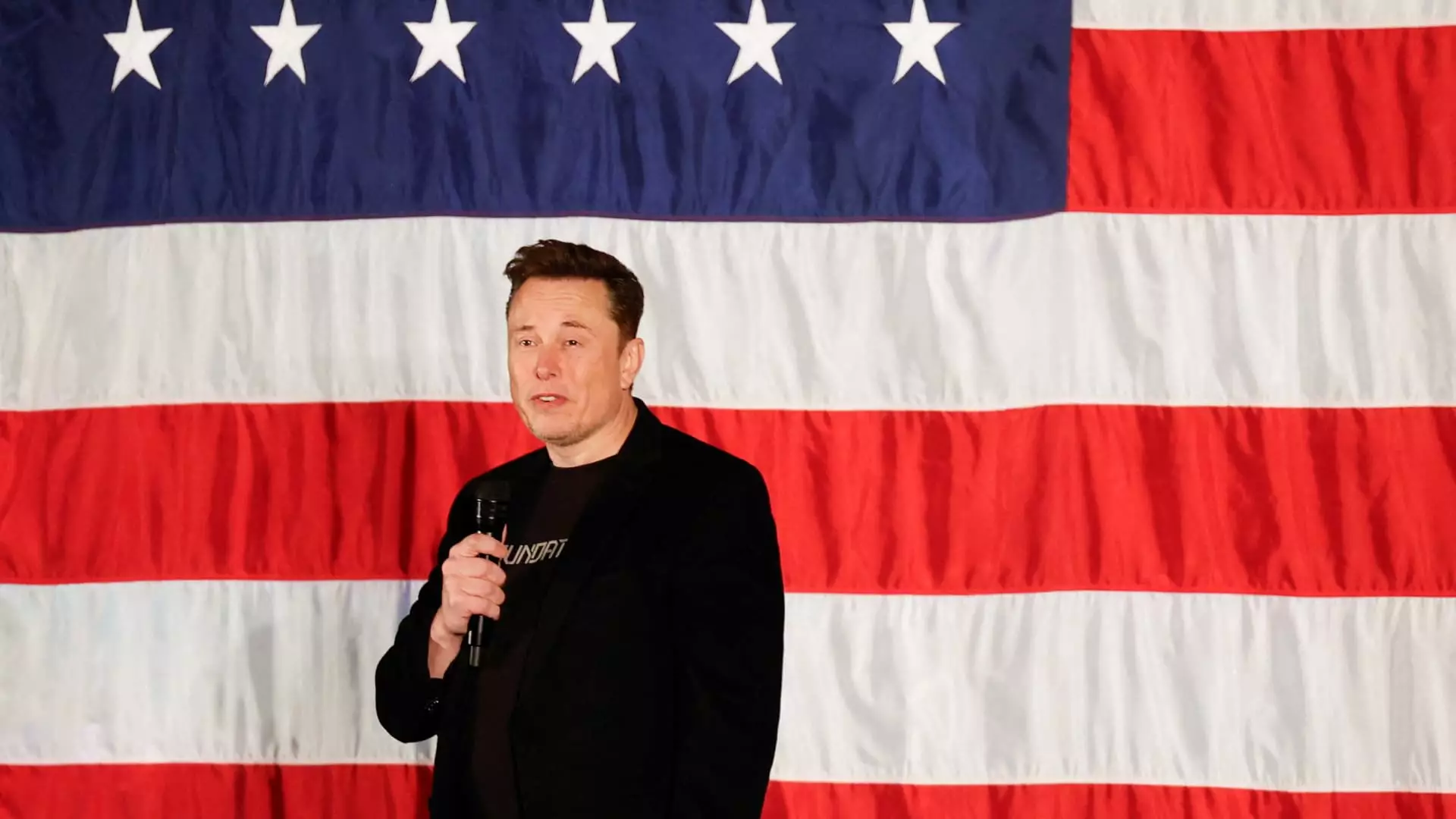The legal tussle surrounding Elon Musk’s ambitious $1 million daily lottery aimed at registered voters in Pennsylvania has made headlines, igniting debates over election ethics and legality. A Pennsylvania federal judge recently ruled to return a lawsuit against Musk and his political action committee (PAC) back to the state court, setting the stage for potential judicial scrutiny over what District Attorney Larry Krasner deems an unlawful attempt to influence voters amid the high-stakes presidential election.
The crux of the lawsuit rests on accusations leveled by Krasner, who claims that Musk’s lottery constitutes an illegal game of chance, effectively resembling a lottery scheme that violates state laws. Additionally, the District Attorney argues that the initiative may serve as a ploy to skew voter sentiment in favor of certain candidates, particularly the backing of Donald Trump against Kamala Harris, thereby raising significant legal and ethical questions regarding electoral integrity.
This contention is not without merit, as the ramifications extend beyond mere legal interpretations. At the heart of the matter lies the fundamental principle of free and fair elections — a cornerstone of democracy. When external factors, such as a billionaire wielding financial leverage to attract voters, come into play, they prompt concerns about the fairness of the electoral process. Krasner’s move to halt this unprecedented lottery could set a legal precedent for how financial incentives intersect with political campaigns.
U.S. District Judge Gerald Pappert’s decision to reject the argument that the case should be adjudicated in federal court underscores a crucial aspect of American jurisprudence: the importance of adhering strictly to existing laws. Pappert determined that the issues at hand were more aligned with state law, indicating the case doesn’t invoke any federal questions that would warrant federal court jurisdiction.
This decision highlights a significant feature of American law: while motivations for filing a lawsuit, such as concerns over voter influence, may be linked to broader federal issues, the legal framing often dictates the jurisdiction in which cases reside. In this case, the District Attorney’s efforts to engage state law claims resonated with the judicial system’s inclination to address such matters within their appropriate realms.
Moreover, the suggestion by Musk’s attorneys to shift the case to federal court seems to have backfired, further entrenching the resistance against their enterprise. Pappert’s explicit remarks regarding the defendants’ failure to articulate any federal law questions required to adjudicate against Krasner accentuate the significance of solid legal grounding in maneuvering through the complex landscape of election-related litigation.
As the case reverts back to the Philadelphia County Court of Common Pleas, it’s clear that the next moves will shape the trajectory of Musk’s lottery initiative. Krasner’s office is preparing for swift action, with anticipations of an emergency hearing aimed at effectively halting the $1 million daily lottery. The unfolding events will determine whether Musk’s ambitious giveaway will continue to operate or be barred from further distribution of prizes.
The broader implications stretch well beyond the immediate case at hand. Voter engagement initiatives have increasingly taken unconventional forms in recent years; however, this lottery raises critical ethical questions about what constitutes healthy voter motivation. Financial incentives could lead to manipulation of voter sentiment, undermining the essence of democratic participation.
Furthermore, the potential fallout for Musk and his PAC may serve as a cautionary tale for other public figures considering similar approaches to voter outreach. The intersection of financial capabilities and political influence is an area ripe for scrutiny, and cases such as these may prompt lawmakers to reevaluate the boundaries of acceptable electoral engagement tactics in a rapidly changing political landscape.
As the legal landscape around this case continues to evolve, it provides a compelling examination of the complexities inherent in balancing financial influence and democratic processes. The implications of the court’s eventual ruling will undoubtedly resonate across the political spectrum, making this event truly one to watch as November’s election nears. The intersection of law, ethics, and finance in elections is not merely a legal issue; it is a fundamental inquiry into the essence of democracy itself.


Leave a Reply